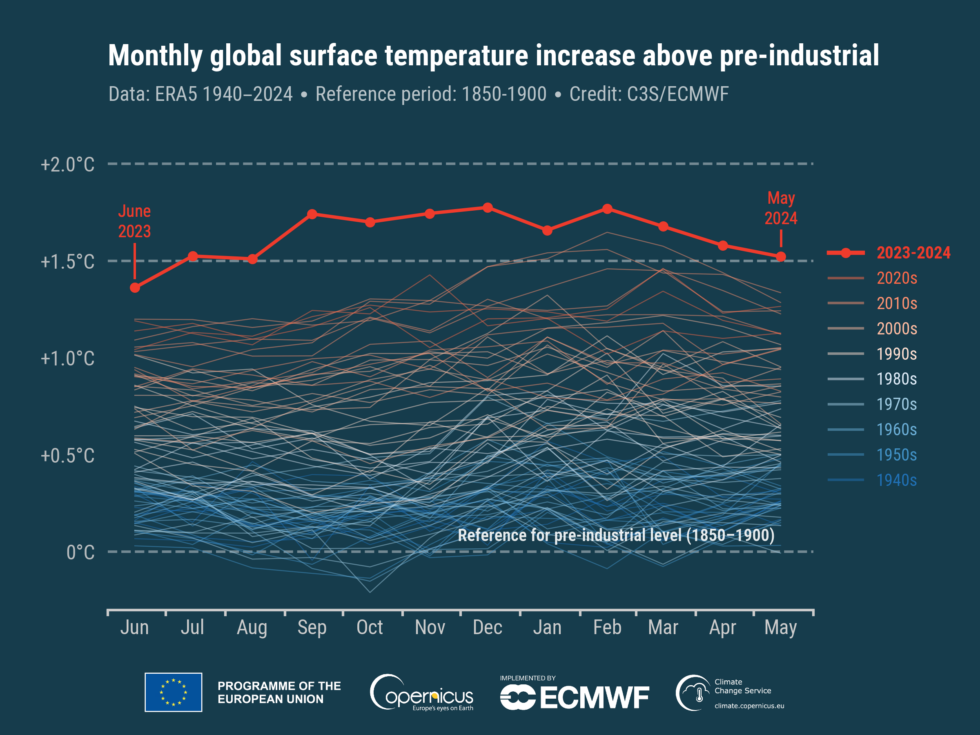I’m sure most world governments are ignoring scientists saying “there is still a chance if we do these things” because those things would damage global conglomerate profits. We’re fucked. Unless a lot of us suddenly become ecoterrorists targeting the biggest polluters.
Small changes never were a viable solution, but for a while they could be sold as one. Especially the ones where the consumer became the problem and one to take action (recycling et al.) Only a complete restructuring of society would do much of anything, and now it’s even too late for that because of both the time and the population. Yeah, it’s pessimistic and doomerism, but it’s also reality.
It didn’t need “a complete restructuring of society” – that’s its own kind of cynical disinformation – but rather just (a) ending subsidies for polluting industries (including imposing taxes to compensate for externalities) and (b) zoning reform to cease subsidizing low density.
I’d agree I’m cynical, but it’s just my opinion based on everything I’ve read and seen over decades, not some attempt to brainwash people into inaction. We should absolutely do anything we can to change our ways both individually and overall now that we know the damage we do, but that doesn’t guarantee a fix.
It’s very difficult to discuss the state of things today without being accused of being too negative and now even claimed to be “the problem”. If you want to continue thinking that we could have had a modern society with high living standards and constant growth, then go ahead. It’s simply not realistic to me knowing we have a finite world. The bacteria in the beaker analogy is well known to everyone.
We crossed the line maybe with the industrial revolution, but certainly with learning how to use chemical means to provide far more food than naturally possible (Haber process). I fail to see how we can ever get back to that line now, especially since it and everything else we do is heavily dependent on petroleum that’s also finite. Hence my comment on restructuring society - unlimited growth is not sustainable, yet it’s a cornerstone for us for centuries.
I did think we could fix things long ago, but after a while you begin to see the pattern of hope and promises and realize we’re experts at fooling ourselves.
“We all know what to do, but we don’t know how to get re-elected once we have done it.” – Jean-Claude Juncker
You’ve got this odd situation where people don’t actually realise how bad this is, because if it was really bad then the governments would actually do something about it, but the governments know that if they do what is needed, a lot of people will be substantially poorer, and then they’ll get voted out and replaced with somebody who brings back all the petrol cars and the toxic shit being dumped into rivers.
So much for the 1.5° goal…

I’m sure most world governments are ignoring scientists saying “there is still a chance if we do these things” because those things would damage global conglomerate profits. We’re fucked. Unless a lot of us suddenly become ecoterrorists targeting the biggest polluters.
Small changes never were a viable solution, but for a while they could be sold as one. Especially the ones where the consumer became the problem and one to take action (recycling et al.) Only a complete restructuring of society would do much of anything, and now it’s even too late for that because of both the time and the population. Yeah, it’s pessimistic and doomerism, but it’s also reality.
It didn’t need “a complete restructuring of society” – that’s its own kind of cynical disinformation – but rather just (a) ending subsidies for polluting industries (including imposing taxes to compensate for externalities) and (b) zoning reform to cease subsidizing low density.
I’d agree I’m cynical, but it’s just my opinion based on everything I’ve read and seen over decades, not some attempt to brainwash people into inaction. We should absolutely do anything we can to change our ways both individually and overall now that we know the damage we do, but that doesn’t guarantee a fix.
It’s very difficult to discuss the state of things today without being accused of being too negative and now even claimed to be “the problem”. If you want to continue thinking that we could have had a modern society with high living standards and constant growth, then go ahead. It’s simply not realistic to me knowing we have a finite world. The bacteria in the beaker analogy is well known to everyone.
We crossed the line maybe with the industrial revolution, but certainly with learning how to use chemical means to provide far more food than naturally possible (Haber process). I fail to see how we can ever get back to that line now, especially since it and everything else we do is heavily dependent on petroleum that’s also finite. Hence my comment on restructuring society - unlimited growth is not sustainable, yet it’s a cornerstone for us for centuries.
I did think we could fix things long ago, but after a while you begin to see the pattern of hope and promises and realize we’re experts at fooling ourselves.
“We all know what to do, but we don’t know how to get re-elected once we have done it.” – Jean-Claude Juncker
You’ve got this odd situation where people don’t actually realise how bad this is, because if it was really bad then the governments would actually do something about it, but the governments know that if they do what is needed, a lot of people will be substantially poorer, and then they’ll get voted out and replaced with somebody who brings back all the petrol cars and the toxic shit being dumped into rivers.
We’re completely and utterly fucked.